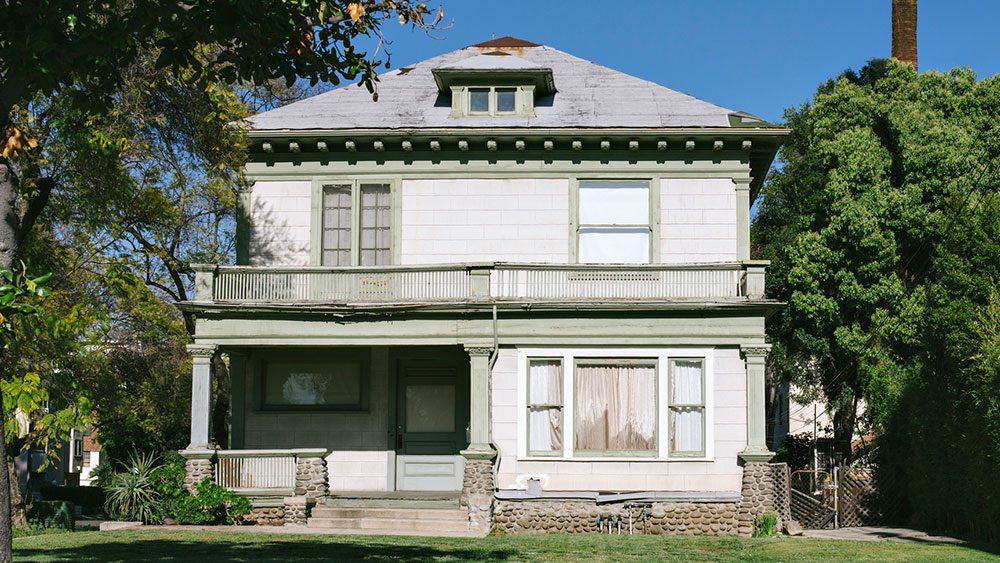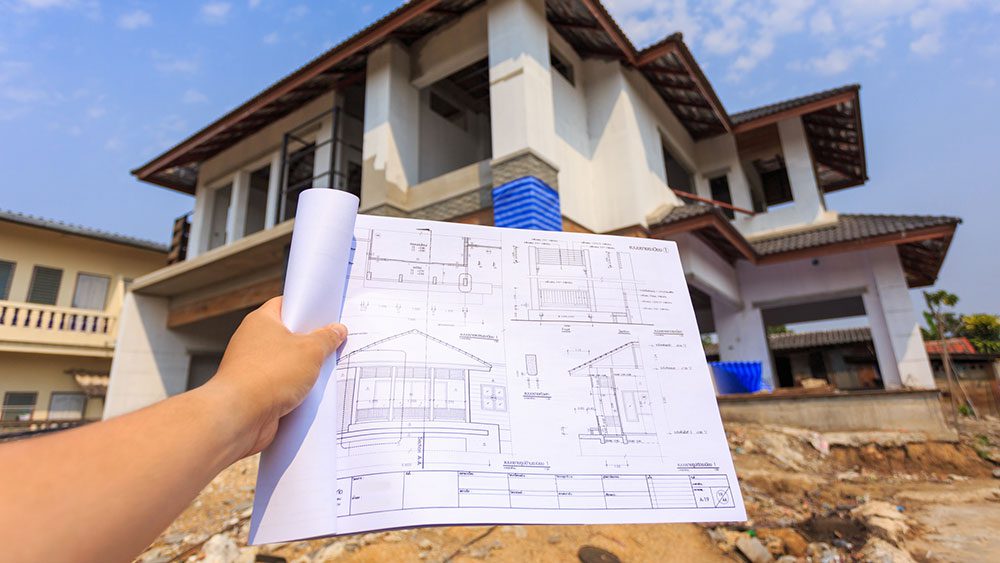Turning a neglected property into a personalized masterpiece can be enticing in real estate. A fixer-upper might appeal to you if you are too attracted to this idea. However, it would be wise to consider the pros and cons with utmost care. This guide explores the potential advantages and challenges of buying a fixer-upper, thus providing you with a well-rounded perspective.
What is a Fixer-Upper?
A fixer-upper is a house typically available at a lower purchase price due to its need for extensive repairs, renovations, or upgrades. It often demands considerable time, money, and effort to make it livable or optimize it for resale. The term ‘fixer-upper’ usually signifies a home requiring more than cosmetic changes – think more about structural modifications or essential repairs.
Buying a Fixer-Upper: A Quick Overview
Purchasing a fixer-upper is often intricate and requires careful planning and execution. Before purchasing, you must assess the property, determine the repairs needed, and estimate renovation costs. Your budget should include the house’s purchase price and the forecasted renovation expenses.
You might also want to hire professionals like architects, contractors, and home inspectors to provide their expertise and advice. They can help unearth any concealed issues with the property, such as faulty wiring, plumbing issues, or structural damage that could balloon renovation costs.
Regarding financing, various loan programs cater to those buying fixer-uppers, including the FHA 203(k) loan. Thorough research and consultation with real estate and financial experts are advised before you dive into such a significant investment.
Benefits of Buying a Fixer-Upper
Purchasing a fixer-upper can be an insightful investment or a creative project. This decision has advantages like lower initial pricing, the chance to personalize the property, and potential high returns. However, it demands significant time, effort, and financial commitment.
Lower Purchase Price: The Financial Advantage
One of the main draws of buying a fixer-upper is the potential cost savings. Since these houses are not move-in ready, they often have a lower asking price than comparable homes in the same area. That translates into immediate cost savings at the time of purchase, which can make homeownership more accessible to buyers with a tighter budget.
Possibility of High Return on Investment
Investing in a fixer-upper can provide a substantial return on investment (ROI) but can also result in a significant loss.
You can significantly increase the house’s market value by purchasing the property at a low cost and making strategic renovations. The increased value upon resale can outpace the renovation costs and initial purchase price, offering a sizeable profit margin. The ability to turn a low-cost property into a high-value asset attracts many investors to fixer-upper projects.
Unique Opportunity for Customization
Another allure of buying a fixer-upper is its unique opportunity for customization. Unlike spec homes with predetermined layouts and designs, fixer-uppers offer the creative freedom to tailor the living space to your needs and preferences. From altering floor plans to selecting the finishes, you have a blank slate to create your dream home. The customization can further enhance the property’s value, rendering personalization a functional benefit.
Access to Better Neighborhoods
Buying a fixer-upper may also open the doors to better neighborhoods. The high prices of move-in ready homes often can put desirable areas out of reach. However, fixer-uppers can make these sought-after locations more financially accessible. After all, location is a critical factor in real estate, influencing both your living experience and the potential future resale value of the property.
Risks and Challenges in Buying a Fixer-Upper
Purchasing a fixer-upper is a tempting prospect for home buyers and investors seeking a potentially rewarding project. While fixer-uppers offer the allure of customization and significant potential returns, it’s vital to understand that this decision comes with specific challenges and risks.
Unexpected Problems and Unplanned Expenses
Unfortunately, fixer-upper projects could unearth unexpected problems leading to unplanned expenses. From hidden structural damage to improper building practices that need rectification, these concealed issues can quickly escalate renovation costs. Even with thorough inspections, some problems might only become apparent once the renovation process has begun. Inflation or changes in material costs could also add to the financial burden. To mitigate this, experts suggest setting aside a contingency fund, ideally 5-10% of your renovation budget.
Going Over Your Budget
Despite the best planning, renovations often cost more than initially expected. This can be due to unexpected problems, changes in plans, or even a change of heart regarding home design. You might want higher-end finishes, decide to add more features, or find that your original choices are no longer available. Furthermore, living out of a home during a renovation can add indirect costs such as dining out more frequently, boarding pets, and even finding a temporary place to stay. All these elements can push your budget over the limit.
Stress and Uncertainty Involved
The journey of buying and renovating a fixer-upper often comes with considerable stress and uncertainty. Your budgetary worries are compounded by the need to manage contractors, make design choices, face construction delays, and even live in disarray during the renovation. The unpredictability of stumbling upon severe issues during the renovation can cause additional stress. Additionally, the time and energy investment required can be significant, which might impact your regular lifestyle and routines.
Long-Term Project Commitment
Fixer-uppers are long-term projects. The timeframe for renovations can often be extended due to unforeseen problems or delays in getting permits and inspections, further prolonging your wait to move in or sell. Sometimes, it can take months or even years to complete the total renovation and get the desired results. This requires perseverance, patience, and coping with possible inconveniences. The ongoing construction work can disrupt your day-to-day life if you live in the house during renovation.
FAQ
Should you buy a fixer-upper house?
Whether or not to buy a fixer-upper house is a personal decision and depends on your circumstances. A fixer-upper can be a great investment if you have the time, patience, and budget for potentially extensive renovations. It’s particularly advantageous if you’re focused on customization and are interested in a specific, potentially pricey neighborhood. However, if the idea of a long-term renovation project feels overwhelming or your budget is very tight, a fixer-upper may not be an ideal choice. Always consult with real estate and financial experts before making a decision.
How much should you offer for a fixer-upper home?
Determining an offer for a fixer-upper home depends on various factors, such as the location, house size, the extent of repairs needed, and housing market trends. It is advisable to start by determining the estimated after-repair value (ARV) of the home – what the house is worth after all repairs and renovations. Then, deduct your estimated renovation costs, your desired profit (if you’re an investor), and additional contingency costs. This formula can help you arrive at a reasonable offer. However, it’s crucial to remember that every house and situation is unique and should only serve as a starting point. You should also consult with your Realtor and a professional home inspector to make an informed decision.
What should I watch out for, legally, when buying a fixer-upper?
When buying a fixer-upper, you should carefully consider potential legal implications. Firstly, ensure you know zoning laws or restrictions that could impact your renovation plans. Secondly, permits are typically required for substantial renovations such as adding rooms, moving walls, or changing layouts, so you must familiarize yourself with the local permit process. Remember, unpermitted work can lead to fines and trouble when reselling the property. Also, if the home is classified as a historic property, there might be special rules about what changes can be made. Lastly, if the house contains health risks like asbestos or lead paint, you’ll need to understand what the law requires regarding remediation and disclosure. Always seek legal counsel when purchasing a fixer-upper to ensure you’re well-informed.
Closing Points
Purchasing a fixer-upper can present a one-of-a-kind opportunity to create a dream home tailored to your preferences while potentially resulting in a significant return on investment. However, this venture is not without risks, as unplanned expenses, renovation stress, and a long-term project commitment are part and parcel of the journey.
The key to buying a fixer-upper is conducting detailed property inspections, careful budget planning, understanding the legalities involved, and maintaining preparedness for surprises. Consult with real estate professionals, financial advisors, and legal experts before deciding. Owning a property should be both a rewarding investment and a home that you love living in.
© 2024 xpertRealtyMarketing.



